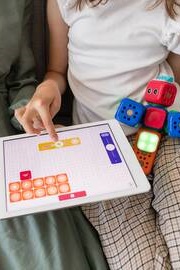4 Reasons Why Students Struggle With Math
Almost all students have a least one subject that they consider to be their least favorite. While this subject will vary from student to student, the one that most kids tend to hate is math. This shouldn’t come as a surprise. Math is one of the more difficult subjects early on in school, and it doesn’t really get easier.
However, the difficulty isn’t the only reason students struggle with math, in particular. There are usually other explanations as to why this is. In this article, we will go over those reasons so that you can better adapt your teaching strategy to account for them.
Learning Disabilities
One thing that many schools have become much better about these days is acknowledging any learning disabilities a student might have and making adjustments for them. Things such as autism or ADD/ADHD are well-known problems that can make learning math more difficult for some students, but dyslexia is another one.
Most of the time, dyslexia makes reading more difficult for children, but it can also happen with numbers. In fact, some students might only have dyslexia with numerical values and not letters, making it harder to detect. Regardless of what learning disabilities, your students may face, changing the way you teach to accommodate them is crucial for their success.
Lack of Patience or Concentration
Not all mental struggles come from learning disabilities, though. Many young children struggle with common concepts such as patience and concentration. Kids can work on and develop these traits as they get older, but in the meantime, they will struggle with their math studies if they lack either of them.
That means, on top of finding new ways to help your students master math, you should also figure out how to help them improve these traits. Not every day needs to be a math lesson. Taking the time to help students develop their patience and concentration will go a long way.
Left-Brain vs. Right-Brain
Of course, one of the more well-known reasons why some students struggle with math is because they are right-brained people. Those who use more right-brained thinking are those who are creative and expressive. Math is very straight to the point and analytical, something that comes more naturally to left-brained individuals.
In order to combat this, you should try to find ways to inject creativity into your lessons. Maybe you design a project around a complex topic or come up with problems that are more stimulating to right-brained people. The choice is up to you.
Math Anxiety
Finally, we have math anxiety. Sometimes, the thought of having to do math will stress kids, teens, and even adults out and cause them to struggle even more than before. This problem can be made worse by all of the previously mentioned difficulties. It can also be hard to identify, but once you know how to recognize and overcome math anxiety, you will be able to help a lot of students do much better with this troublesome subject.










